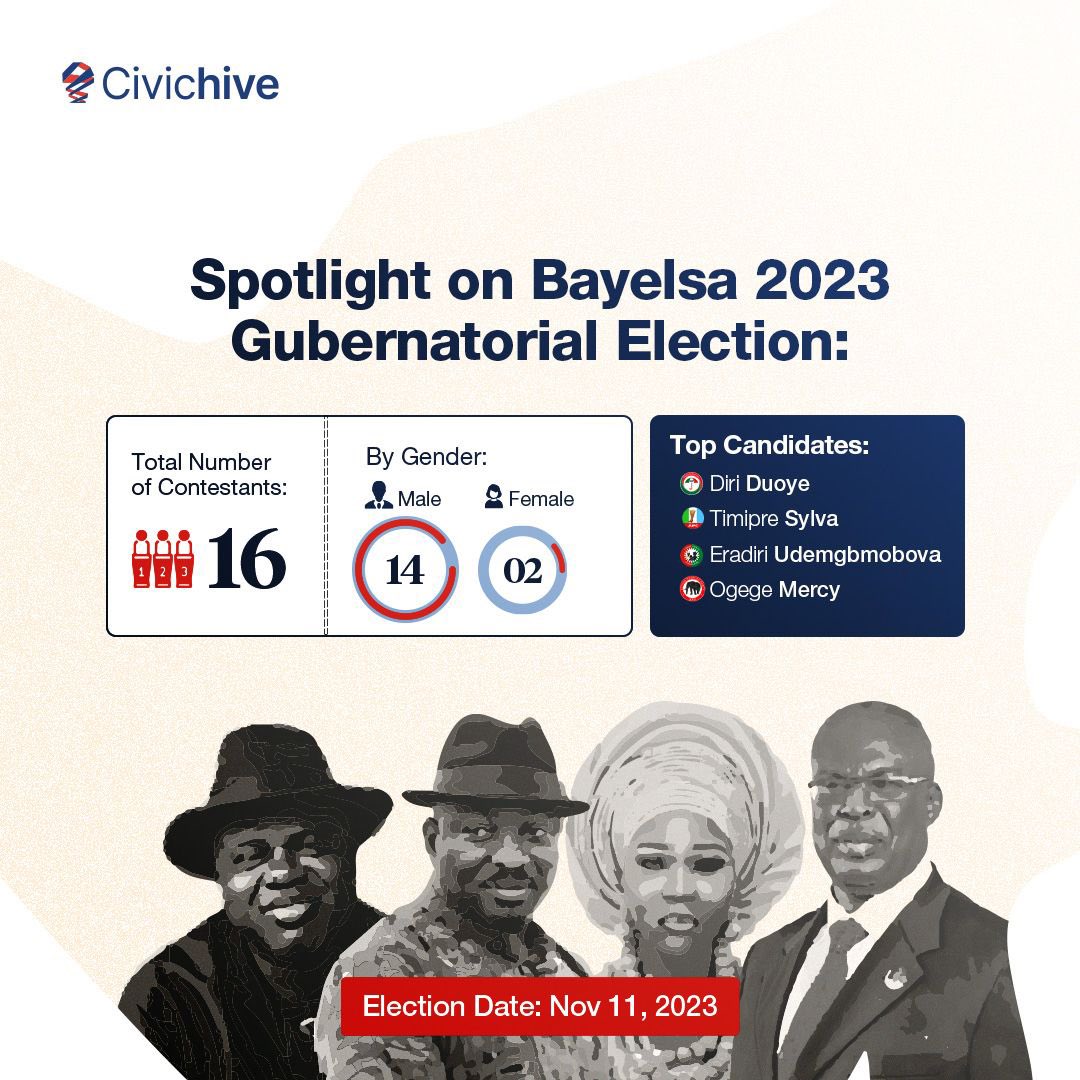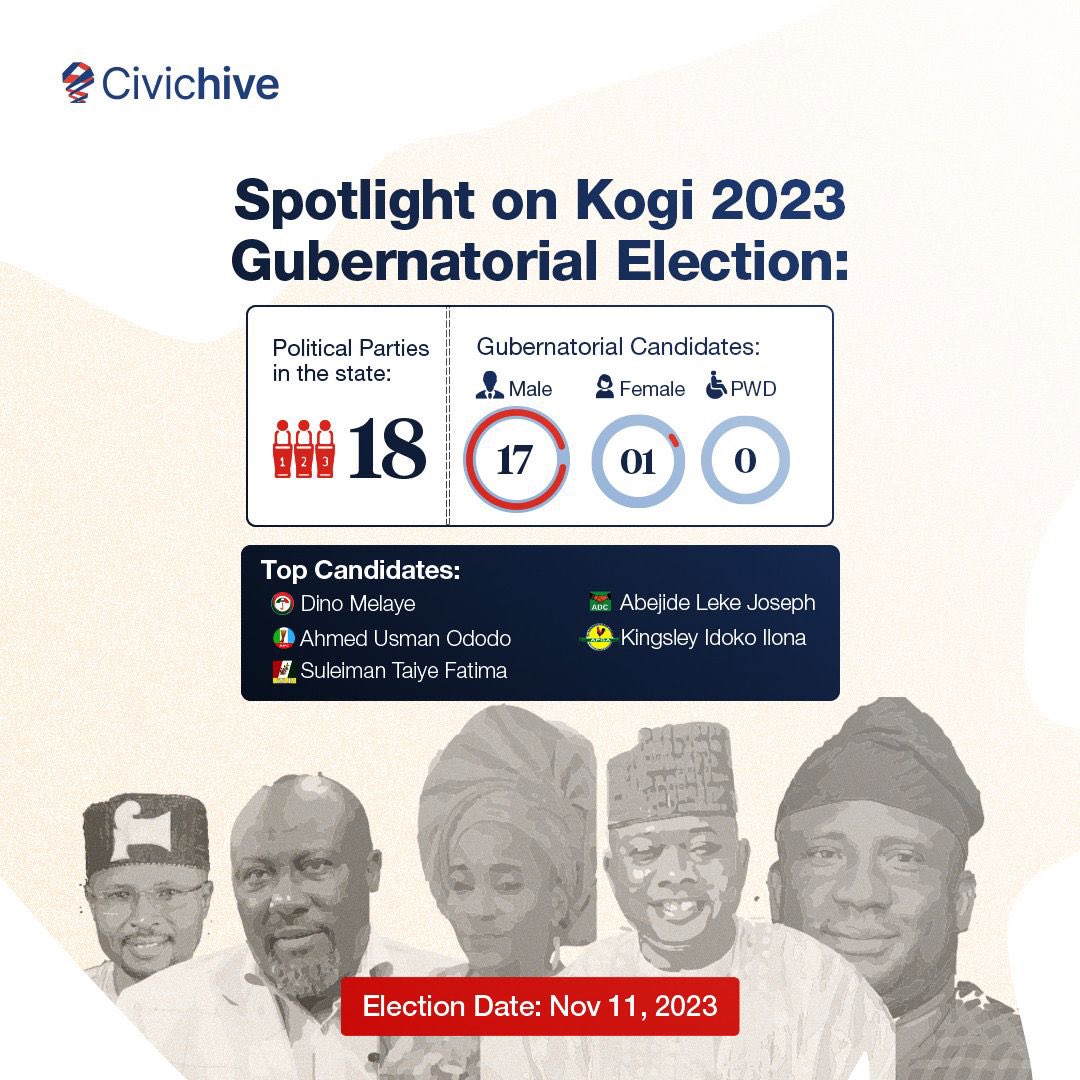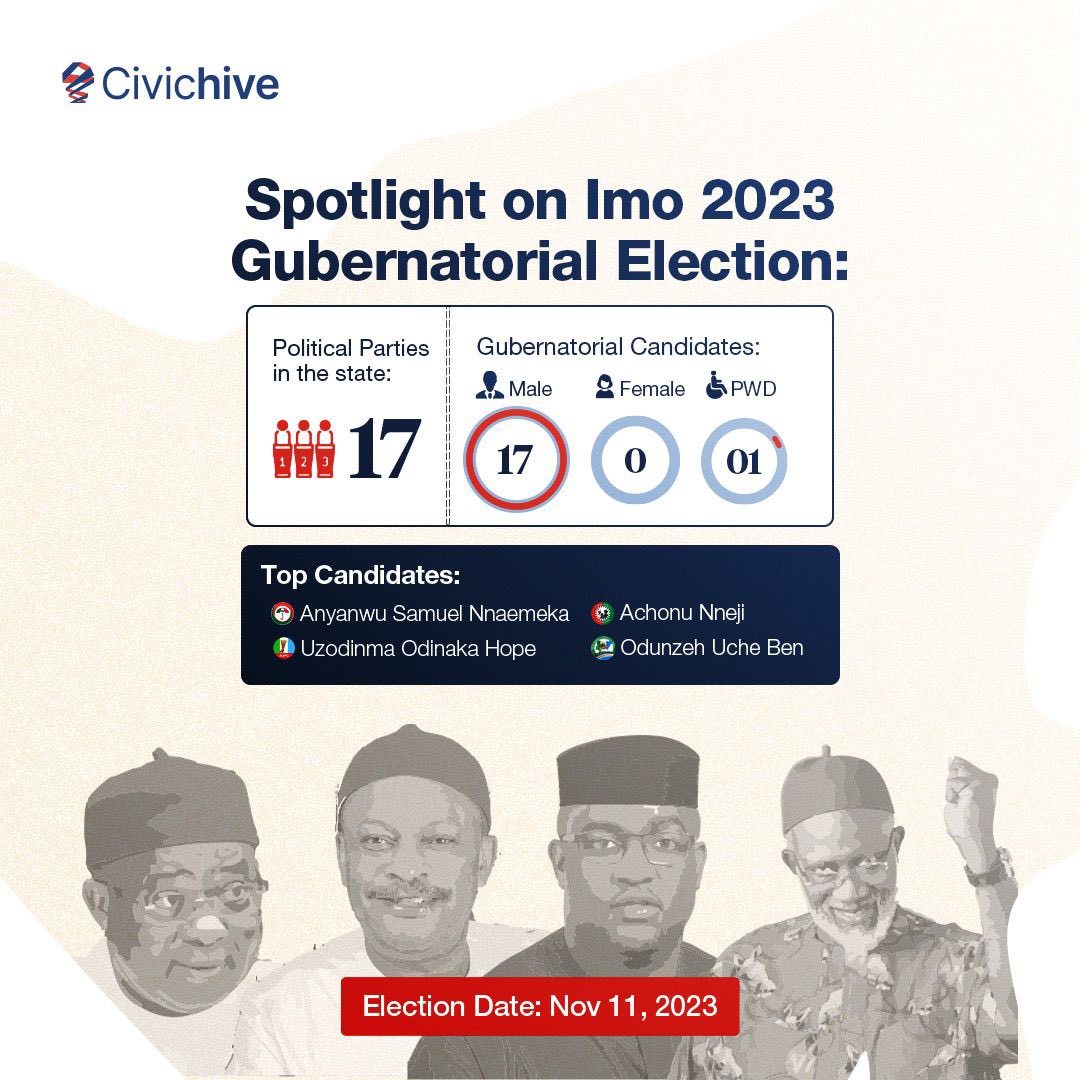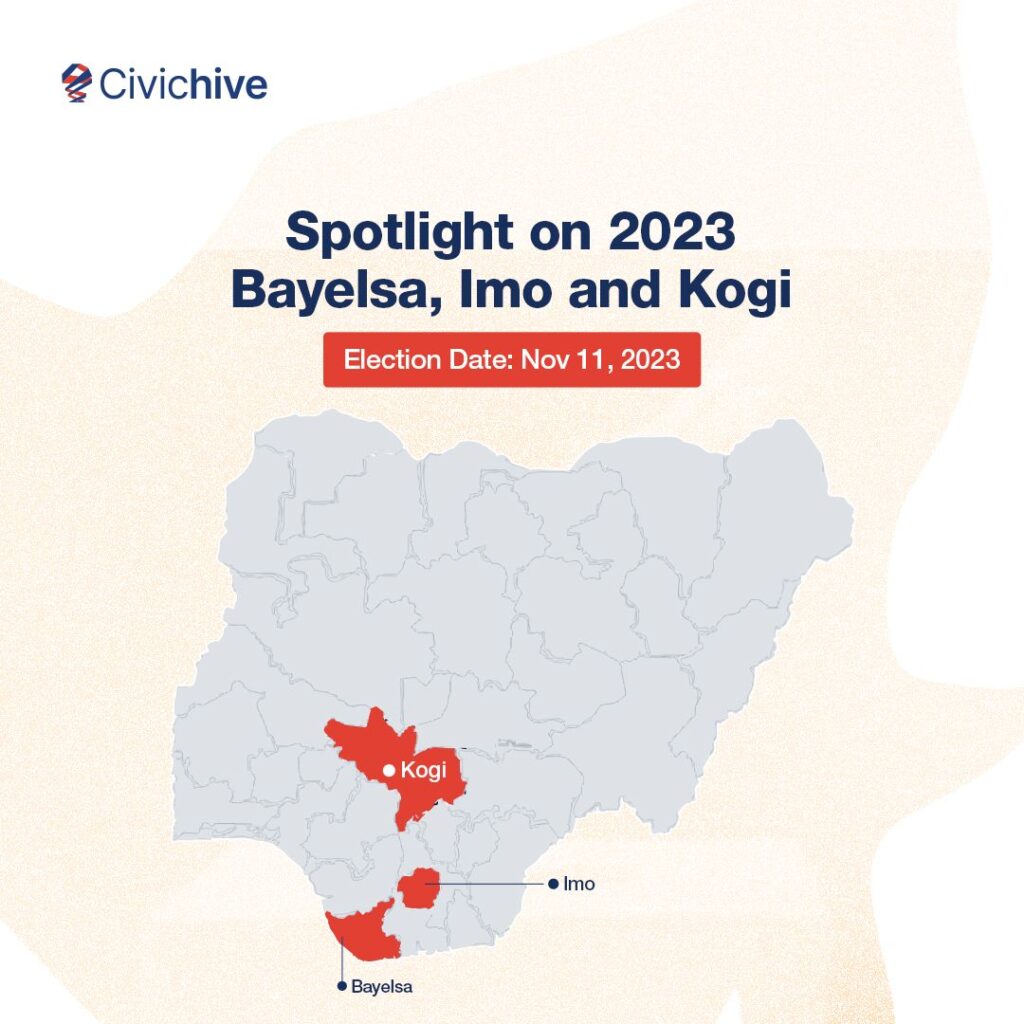As you might have known, elections are around the corner again but this time, it is happening in selected states within the country. For those who are new to civic education and the election process in Nigeria, you might be wondering why some states are having gubernatorial elections outside of the General election window that happened early 2023.
In this article, we gave an insight into understanding this as a newbie in Nigerian politics.
What are off-cycle elections in Nigeria?
Off-cycle elections are held outside of the general election timetable. Every four years, Nigeria has Presidential, National Assembly, Gubernatorial and State House of Assemblies elections at the same time.
The last general election in 2023 saw the election of governors in most of the states in the country though not all states participated. This is owing to issues that arose during elections in several states, resulting in an off-cycle election. Among these states are Bayelsa, Kogi, Anambra, Imo, Osun, Ondo, Edo, and Ekiti.
What led to off-cycle elections in these states?
In 1999, Nigeria returned to Democracy, and elections were held simultaneously in all states of the federation. Several candidates who were dissatisfied with the outcome petitioned the court to reclaim their mandate.
The electoral petition tribunal requested the dismissal of several governors, and other states with challenged results held re-elections. This is how eight Nigerian states became off-cycle electoral states.
Anambra state
In 2003, Anambra state established a precedent which altered the political narrative of the nation. Chris Ngige, a candidate for the Peoples Democratic Party (PDP) was declared the winner of the state governorship election but Peter Obi, the candidate of All Progressives Grand Alliance (APGA) petitioned the tribunal to challenge that decision.
After a two-year tribunal case at the Court of Appeal in Enugu, the previously announced result was canceled, and Peter Obi was sworn in as Governor in March 2006. What this means is that the newly sworn in Governor started a fresh 4 year term.
Since then, Anambra state has held subsequent gubernatorial elections in November 2013, November 2017, and November 2021, with the next election scheduled for 2025.
Bayelsa state

Losing at the tribunal, Ebitimi petitioned the Court of Appeal in Port Harcourt to overturn the prior verdict. The judgment of the Appeal court prompted INEC to organize a new poll in the state in 2008. Sylva won and was declared elected in the newly held election, which disrupted the state’s election calendar.
The next gubernatorial election in the state is scheduled for 11 November, 2023.
Edo state
Up until 2007, Edo state held its gubernatorial elections along with other states. When Oserheimen Osunbor of the PDP was declared the winner of the governorship race on April 14, 2007, Adams Oshiomhole of the Action Congress of Nigeria (ACN), who was dissatisfied with the verdict, filed a petition.
On March 20, 2008 the electoral tribunal overturned Oserheimen Osunbor’s victory and proclaimed Oshiomhole the winner.
Ekiti state
In April 2007, INEC declared Segun Oni the PDP candidate, winner of the Ekiti state governorship election. Kayode Fayemi, dissatisfied with the declaration by INEC, approached the tribunal to petition the election outcome.
After serving as governor for three years, Segun Oni’s victory was thrown out by the appeal court in October 2010, and a new election was mandated.
Kogi state

Although the election was nullified, calling for the conduct of a fresh election, Ibrahim Idris won the re-election as Kogi State’s governor on March 29, 2008. The next election is scheduled for 11 November, 2023.
Ondo state
The Ondo State case is similar to others where a candidate sued another following the outcome of the 2007 governorship election. The incumbent governor and PDP candidate, Olusegun Agagu, was re-elected. The then Labour Party candidate Olusegun Mimiko, however, filed a petition against the outcome of the election in court.
Olusegun Mimiko was declared the actual election winner when the tribunal and Court of Appeal accepted the results in 2009. In February 2009, he was sworn in as governor.
Osun state
Olagunsoye Oyinlola of the PDP was proclaimed the winner of the Osun state gubernatorial election in 2007. Dissatisfied with the voting process and declaration, ACN candidate, Ogbeni Rauf Aregbesola, contested the election outcome in court.
After three years of legal wrangling, the appellate court finally pronounced Rauf Aregesola the legitimately elected governor of Osun state in 2010.
Imo state

The legal tussle moved from the election tribunal to the Supreme Court. Uzodimma was inaugurated as governor of the state on January 14, 2020, after the supreme court declared him winner. The state has never held an off-cycle election, but it is set to have its first one on November 11, 2023.
Upcoming 2023 Elections
On November 11, 2023, off-cycle, Gubernatorial elections will be held in Bayelsa, Imo, and Kogi states
In Bayelsa, there are 16 political parties participating in the gubernatorial elections thus making 16 contestants in all; 2 females and 14 males. Diri Duoye (PDP), Eradiri Udengmobofa (LP), Timipre Sylva (APC), and Ogege Mercy (APP) (female) are among the candidates.
The incumbent governor is Douye Diri, a candidate of Peoples Democratic Party (PDP); he has served as the governor of Bayelsa State since 2020. He was the Senator representing Bayelsa Central Senatorial District from 2019 to 2020 in the 9th National Assembly. In the upcoming election, he is running for re-election to a second term.
In Kogi state, on the other hand, there are 18 candidates, 17 men, and 1 woman. Among the candidates are Leke Abejide (ADC), Dino Melaye (PDP), Malam Ahmed Ododo (APC), Idoko Ilona (APGA), and Suleiman Fatima (ZLP).
Yahaya Adoza Bello is the incumbent governor of the state, he has served since 2016. A member of the All Progressive Congress, Bello has been the youngest governor in Nigeria throughout his term in office.
In Imo state there are 17 political parties with 17 candidates on the ballot. Candidates include Odunzeh Ben (NNPP), Achonu Nneji (LP) (PWD), Anyanwu Samuel (PDP), and Hope Uzodimmma (APC).
Hope Odidika Uzodimma, a former Senator for Orlu (Imo West) and member of the All Progressive Congress is the incumbent governor of the state. He has served as governor of Imo State since 2020. He was declared winner of the 2019 Governorship poll after the Supreme Court of Nigeria nullified the election of the then-incumbent governor Emeka Ihedioha. He is on the ballot to contest his second term in the forthcoming election.
For more information about the upcoming elections, follow Civic Hive on all platforms for updates.
